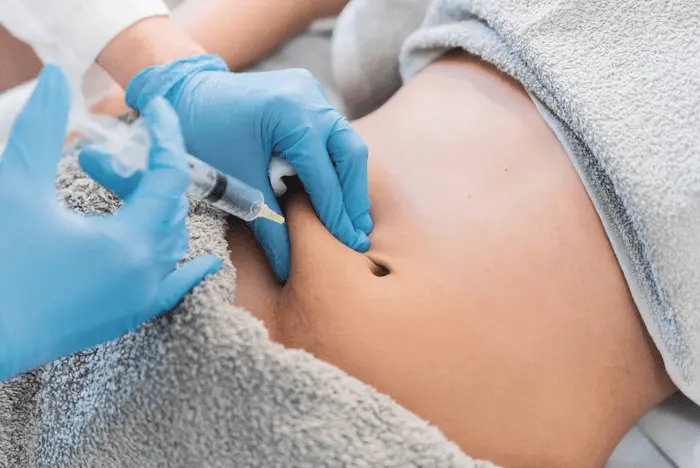
Key Steps to Prepare for Non-Surgical Fat Reduction
In the pursuit of achieving a trim and toned physique, non-surgical fat reduction procedures have gained significant popularity.
In the pursuit of achieving a trim and toned physique, non-surgical fat reduction procedures have gained significant popularity. These treatments offer a non-invasive alternative to traditional surgical methods, providing individuals with effective ways to reduce unwanted fat. However, to ensure optimal results and a smooth experience, proper preparation is crucial. In this article, we will delve into the key steps you should take when preparing for non-surgical fat reduction. By following these guidelines, you can maximize the benefits of these procedures and embark on your journey towards a more sculpted body.
Research and Consultation:
Before considering any non-surgical fat reduction treatment, it is essential to conduct thorough research. Familiarize yourself with the available options, such as cryolipolysis (CoolSculpting), laser fat reduction (SculpSure), or radiofrequency-based treatments (BodyFX). Understand how these procedures work, their potential side effects, and the expected outcomes.
After gathering information, schedule consultations with reputable clinics or healthcare professionals specializing in non-surgical fat reduction. During these consultations, discuss your goals, expectations, and medical history. It is important to disclose any pre-existing medical conditions, previous surgeries, allergies, or medications you are currently taking. This information will allow the healthcare professional to assess your suitability for the treatment and provide personalized advice.
Lifestyle Adjustments:
To optimize the results of non-surgical fat reduction, making certain lifestyle adjustments is beneficial. Focus on maintaining a healthy and balanced diet that includes an adequate amount of fruits, vegetables, lean proteins, and whole grains. Reduce your intake of processed foods, sugary drinks, and excessive fats. Proper nutrition will support your body's natural healing processes and help to maintain the results of the procedure.
Regular exercise is another crucial aspect of preparation. Engage in cardiovascular activities, such as jogging, swimming, or cycling, to promote overall fitness and burn calories. Incorporate strength training exercises to build lean muscle mass, which can enhance the appearance of your body after fat reduction.
Hydration and Skin Care:
Hydration plays a vital role in overall health and skin elasticity. Prior to your non-surgical fat reduction treatment, focus on maintaining good hydration by drinking an adequate amount of water each day. Well-hydrated skin tends to respond better to treatments, ensuring better results and faster recovery.
Additionally, consider adopting a skincare routine to optimize the condition of your skin. Regularly moisturize your skin and protect it from excessive sun exposure by using sunscreen. Healthy skin will aid in the recovery process and contribute to the overall success of the procedure.
Avoid Blood Thinners and Stimulants:
In the weeks leading up to your non-surgical fat reduction treatment, it is advisable to avoid blood-thinning medications or supplements. These may include over-the-counter pain relievers like aspirin, ibuprofen, and certain herbal supplements like fish oil or vitamin E. Blood thinners can increase the risk of bruising and bleeding during and after the procedure. If you are on any prescribed medications, consult your healthcare provider before discontinuing or adjusting their usage.
Similarly, minimize the intake of stimulants such as caffeine and alcohol before the procedure. These substances can affect your body's response to the treatment and potentially interfere with the results. Follow the specific guidelines provided by your healthcare professional regarding the restriction of stimulants and blood thinners.
Quit Smoking:
If you are a smoker, it is highly recommended to quit smoking before undergoing non-surgical fat reduction procedures. Smoking can impair blood circulation and delay the healing process, which can negatively impact the results of the treatment. It also increases the risk of complications during the procedure. Quitting smoking well in advance of the treatment can improve your overall health, enhance blood flow, and promote better healing and recovery.
Manage Stress Levels:
High levels of stress can interfere with the success of non-surgical fat reduction treatments. Chronic stress triggers the release of cortisol, a hormone that can contribute to weight gain and fat storage. Therefore, it is important to implement stress management techniques leading up to your procedure. Engage in activities that help you relax and unwind, such as yoga, meditation, deep breathing exercises, or spending time in nature. Prioritize self-care and ensure you get sufficient restful sleep. By managing your stress levels, you can create an optimal environment for the fat reduction treatment to be effective.
Arrange for Support:
While non-surgical fat reduction procedures are minimally invasive, they still require some recovery time. It is advisable to arrange for a support system during this period. Enlist the help of a friend or family member to assist with daily tasks, transportation, and post-treatment care. Having someone available to provide emotional support can also be beneficial. It is normal to experience some swelling, bruising, or discomfort after the procedure, and having a support system can help alleviate any concerns or anxieties you may have during the recovery phase.
Follow Pre-Treatment Instructions:
The clinic or healthcare professional providing the non-surgical fat reduction treatment will provide specific pre-treatment instructions. It is important to follow these instructions carefully to ensure optimal results. These instructions may include guidelines regarding fasting or avoiding certain substances, such as food, drinks, or skincare products, prior to the procedure. Adhering to these instructions will help to minimize any potential complications and ensure that the treatment is performed under the best possible conditions.
Conclusion
Preparing for non-surgical fat reduction treatments requires a holistic approach that encompasses lifestyle adjustments, skin care, and managing stress levels. Quit smoking, avoid stimulants and blood thinning medications, manage stress, and arrange for a support system to aid in your recovery. Additionally, carefully follow any pre-treatment instructions provided by your healthcare professional. By taking these additional steps, you can further enhance the effectiveness and success of your non-surgical fat reduction procedure, leading you closer to achieving your desired body goals. You can seek precise professional help through our website by sending an email or whatsapp message as we have top surgeons of the country.


Comments
Login & Write comment